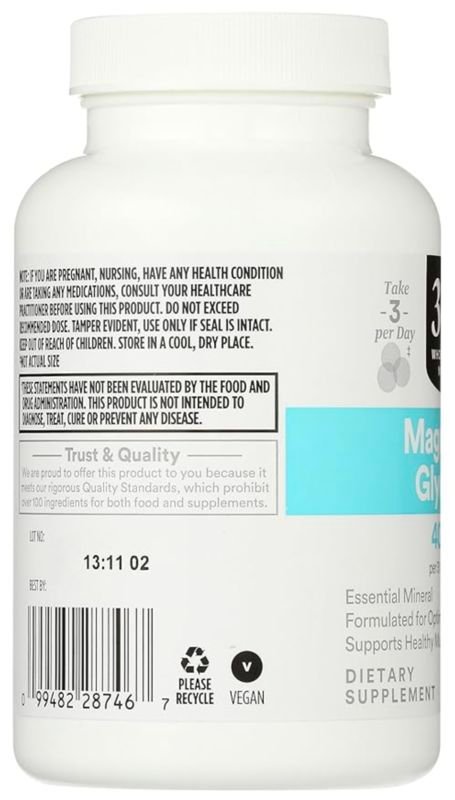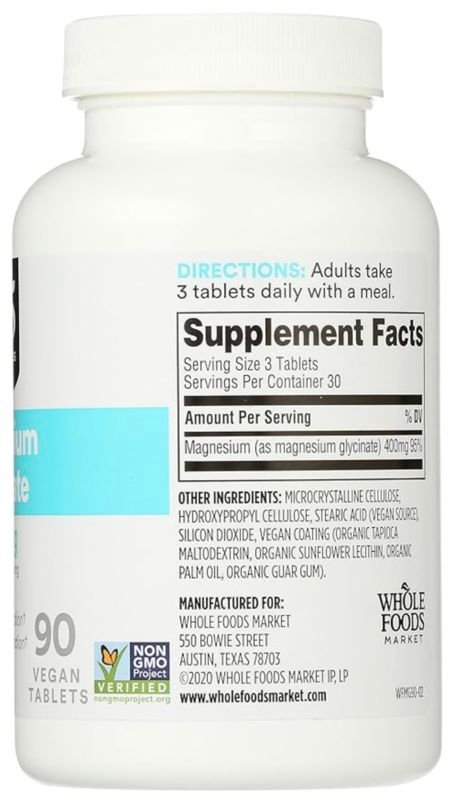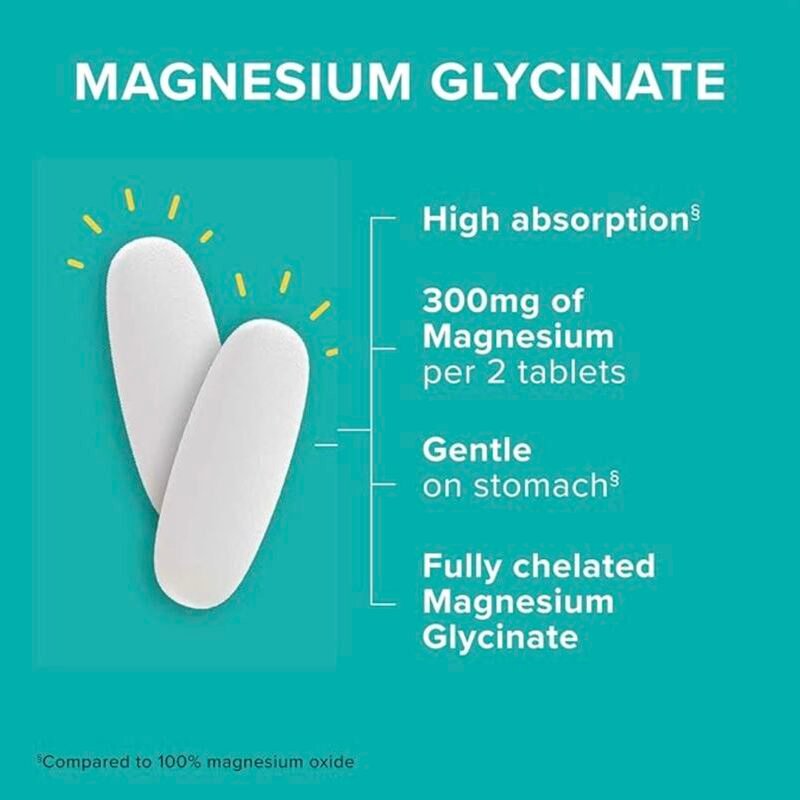Magnesium Glycinate 100 mg Capsules with Citrate for Stress Relief
Support your calm, energy, and well-being with Magnesium Glycinate 100 mg Capsules. Formulated with citrate for enhanced absorption, this gentle magnesium supplement helps promote stress relief, muscle relaxation, and better sleep—without the digestive discomfort. Ideal for daily use to help you get enough magnesium and support overall health.

Why Choose Magnesium Glycinate for Wellness?
Magnesium glycinate is a highly bioavailable form of magnesium known for its gentle effect on the stomach and superior absorption. It’s ideal for individuals looking for a well-tolerated magnesium supplement that supports stress relief, muscle relaxation, and overall wellness.
What Is Magnesium Glycinate?
Magnesium glycinate is a supplement that combines elemental magnesium with glycine, an amino acid that promotes calming effects. As a chelate, this form allows for better intestinal absorption and is less likely to cause diarrhea or loose stools compared to magnesium oxide or other inorganic forms. Magnesium glycinate may also support serotonin production and sleep quality. Because it’s well tolerated, it’s a top choice for people with gastrointestinal sensitivities.
The Benefits of Magnesium Glycinate Supplements
Magnesium glycinate supplements can help support muscle function, reduce the frequency of muscle cramps, and contribute to bone health. They are especially effective in maintaining healthy serum magnesium levels without causing the common side effects of magnesium supplementation like stomach upset or bowel discomfort. In capsule form, the supplement is easy to take daily, and it’s often recommended for individuals experiencing stress or poor sleep. Magnesium glycinate may also aid energy production and improve overall well-being.
The Science Behind Magnesium
Magnesium is essential for over 300 biochemical reactions in the body, playing a crucial role in everything from nerve signaling to blood sugar management. Understanding the science of magnesium supplementation can help you choose the best form for your health goals.

The Role of Magnesium as a Nutrient
Magnesium is a vital nutrient needed for proper neuromuscular and cardiovascular function, as well as energy levels and bone strength. It also helps regulate bowel movements and contributes to red blood cell formation. Dietary magnesium intake is often insufficient, especially in people with certain medical conditions. Magnesium supplementation can help restore magnesium levels and support overall cellular function.
Effects of Magnesium on the Body
The effects of magnesium are broad and beneficial — from supporting muscle relaxation and reducing drowsiness to improving bowel regularity and minimizing heartburn. Magnesium may also help with blood pressure control, stress relief, and blood sugar regulation. Low magnesium has been associated with a variety of health problems, including type 2 diabetes and cardiovascular issues. Magnesium supplementation, when taken at the recommended amount of magnesium, can prevent serious side effects.


Insights from a Systematic Review
A systematic review of cohort studies and meta-analyses has shown that magnesium supplements are effective in addressing magnesium deficiency and improving health outcomes. These studies found that magnesium supplementation improved blood levels of magnesium and reduced symptoms like constipation and muscle cramps. Forms of magnesium like bisglycinate and citrate showed higher absorption and better gastrointestinal tolerance. Reviews also suggest that magnesium glycinate may help reduce the frequency and severity of migraine attacks.
How Magnesium Deficiency Impacts Your Health
Magnesium deficiency can lead to fatigue, poor sleep, muscle twitching, and even more serious medical problems like abnormal heart rhythms or kidney disease. It can result from low dietary intake, certain medications like hydrochlorothiazide, or chronic stress. Taking magnesium supplements, especially in bioavailable forms like magnesium glycinate or magnesium citrate, can help restore optimal magnesium levels and support long-term wellness. A healthcare professional or pharmacist can help determine your daily dose and whether 100 mg, 200 mg, or 240 mg is right for you.

Real Benefits You Can Feel
Magnesium supplementation can make a noticeable difference in everyday wellness—from reducing stress to easing headaches and improving sleep. The right form and dosage can help you get enough magnesium without unwanted side effects.

Can Magnesium Help with Migraine Relief?

What to Expect When Taking Magnesium

